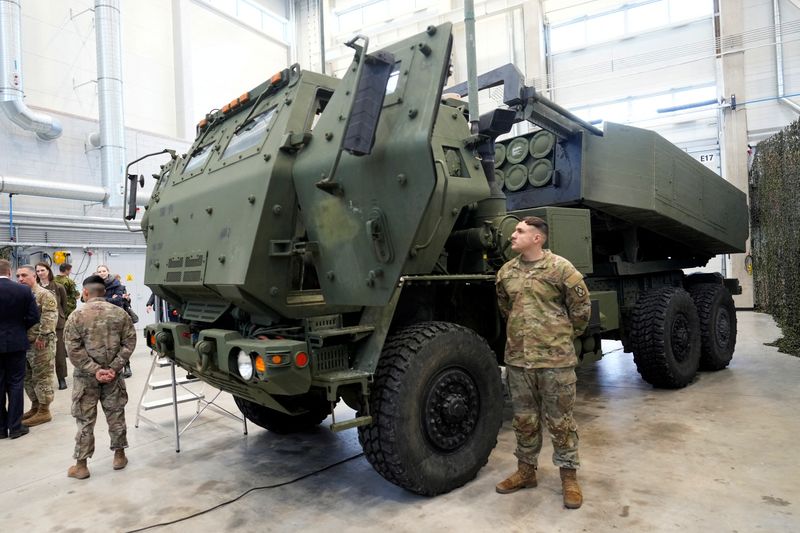STOCKHOLM (Reuters) – European states increased their imports of major weaponry by 47% in the five years to 2022, while the United States’ share of global arms exports rose to 40% from 33%, a leading conflict think-tank said on Monday.
Russia’s invasion of Ukraine last year, following years of growing tensions, has prompted European countries to rush to bolster their defences.
“Even as arms transfers have declined globally, those to Europe have risen sharply due to the tensions between Russia and most other European states,” Pieter D. Wezeman, Senior Researcher with the Stockholm International Peace Research Institute (SIPRI), said in a statement.
SIPRI defines major arms as aircraft, warships, tanks, artillery, missiles and various heavy defence systems.
European states in the U.S.-led NATO alliance increased their arms imports by 65% from the previous five-year period. But worldwide, international arms transfers fell 5.1%, according to SIPRI.
The United States and Russia have been the world’s largest and second-largest arms exporters for the past three decades.
U.S. arms exports increased by 14% from 2013-17, and the U.S. accounted for 40% of global arms exports. Russia’s share fell to 16% from 22%.
“It is likely that the invasion of Ukraine will further limit Russia’s arms exports,” SIPRI’s Siemon T. Wezeman said. “This is because Russia will prioritize supplying its armed forces and demand from other states will remain low due to trade sanctions on Russia.”
In 2022, SIPRI warned that the global nuclear arsenal was likely to grow in the coming years.
(Reporting by Johan Ahlander; Editing by Kevin Liffey)

